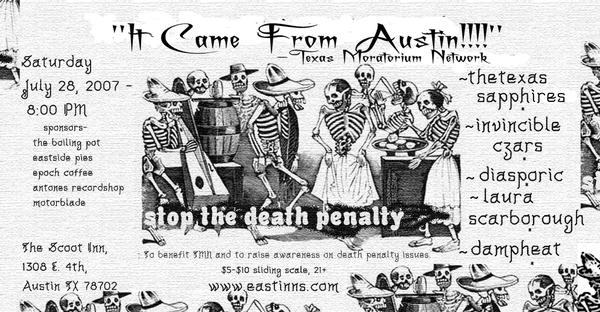From the blog The Huffington Post
Ban on Publishing Names of Certain Government Workers
Missouri just enacted a new statute (2007 House Bill 820, revising Rev. Stat. Mo. § 546.720), which provides in relevant part:
3. A person may not, without the approval of the director of the department of corrections, knowingly disclose the identity of a current or former member of an execution team [i.e., a group of people chosen to perform executions] or disclose a record knowing that it could identify a person as being a current or former member of an execution team. Any person whose identity is disclosed in violation of this section shall:
(1) have a civil cause of action against a person who violates this section;
(2) be entitled to recover from any such person:
(a) actual damages; and
(b) punitive damages on a showing of a willful violation of this section.
A state is free to demand that its employees, and others with whom it contracts, not reveal certain confidential information. It is probably also free to impose civil or even criminal liability for people who violate such confidentiality obligations -- consider, for instance, the law barring the disclosure of income tax records. But a state may not punish third parties (such as reporters, commentators, activists, bloggers, and the like), who never entered into any confidentiality agreements, for revealing accurate information about whom the state is using to perform this important government function.
Perhaps in rare circumstances a state may restrict publishing employees' names when doing so would risk violent attack on the employees, though even there I have argued the First Amendment should generally prevail, since knowing even the names of undercover policemen and the like can often be important for the public's evaluation of government actions. I'm unaware, however, of any real risk of violence to people who are on execution teams, nor is the law limited to situations in which such a risk of violence is present.
Nor should this speech be punishable, I think, on the grounds that whoever republishes it must be aware that it was originally illegally leaked by some government employee. First, sometimes the information may indirectly come from incautious statements by the execution team members themselves, or their relatives or friends who know the team members' identities. But second, the government generally may not punish the redistribution of speech by third parties simply because the original leaker was violating some confidentiality obligation -- if it could, then a wide range of investigative journalism, for instance reporting on corporate or government misconduct, would be legally punishable, on the theory that it reports on information that employees were duty-bound to keep confidential. See generally the Supreme Court's decision in Bartnicki v. Vopper for a discussion, albeit not entirely conclusive, of a related issue.
Of course, people who participate on execution teams may suffer social ostracism or even private discrimination -- not from me, but perhaps from some people who are strongly opposed to the death penalty. But the government may not punish people from publishing accurate information simply because this information might prove embarrassing and socially troublesome for some people.
And this is especially so when the information is connected to such an important government activity, and may be relevant to whether it's being carried out soundly. The Missouri law, according to a New York Times story published yesterday, was enacted following a controversy over supposedly flawed executions: "A Missouri doctor who had supervised more than 50 executions by lethal injection testified last year that he sometimes gave condemned inmates smaller doses of a sedative than the state's protocol called for, explaining that he is dyslexic. 'So it's not unusual for me to make mistakes,' said the doctor, who was referred to in court papers as John Doe I." The identity of the doctor may be quite relevant to deciding whether the state was negligent in using him; and the identity of doctors who deny making mistakes may be relevant to deciding how credible they are.
Thanks to M. Louis Offen for the pointer.























Posted July 31, 2007 | 03:44 PM (EST)